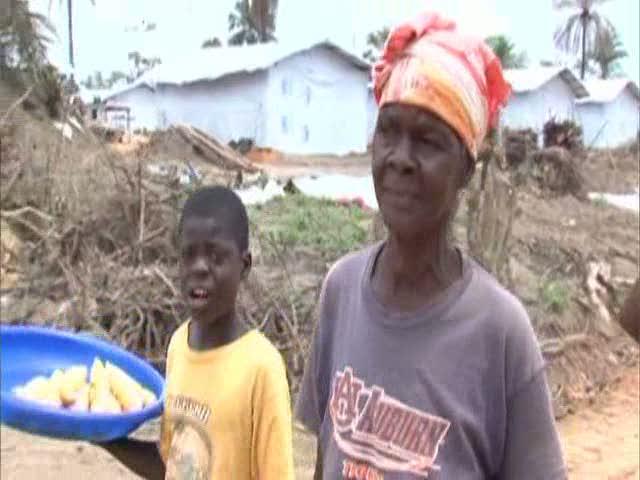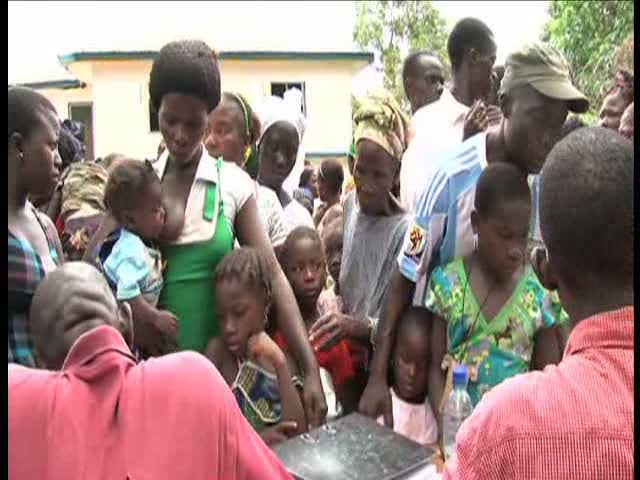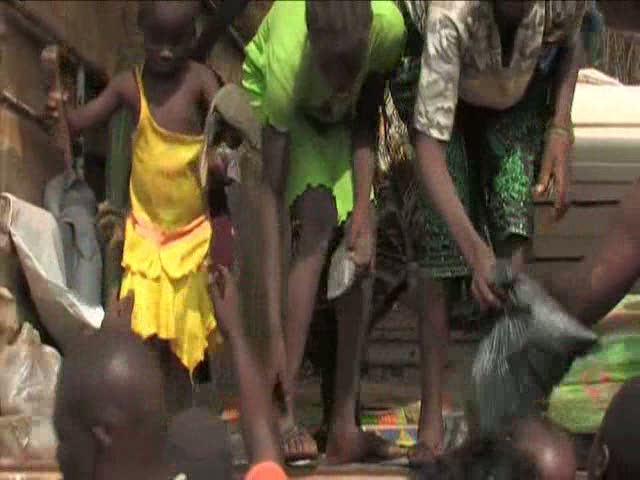- Text size
 |
|  |
|  |
| 
- Français
Côte d'Ivoire to host a decisive conference to end statelessness in West Africa
Briefing Notes, 24 February 2015
This is a summary of what was said by UNHCR spokesperson Karin de Gruijl – to whom quoted text may be attributed – at the press briefing, on 24 February 2015, at the Palais des Nations in Geneva.
UNHCR and the Economic Community of West African States (ECOWAS) are holding a ministerial conference this week to end statelessness in West Africa – the first of its kind on the African continent. The event takes place tomorrow (25 February) in Abidjan, Côte d'Ivoire, and aims at finding regional solutions to prevent, reduce and ultimately eliminate statelessness in West Africa.
More than 750,000 people do not have a nationality or are at risk of becoming stateless in West Africa. These are estimates, however, mostly based on figures released by Côte d'Ivoire. As other countries do not yet have the mechanisms in place to capture data on statelessness, the information for West Africa is not complete, but the problem persists. We believe that statelessness could affect hundreds of thousands more in the region.
Statelessness can be caused by ineffective civil registration and when children are not registered at birth, leaving them unable to establish their nationality. In some countries, women cannot pass on their nationality to their children, or there are discriminatory criteria on the basis of race or ethnicity that prevent certain groups from acquiring or transmitting nationality. Significant migration, the lack of safeguards in nationality laws against statelessness at birth or later in life and the impracticability of some naturalization procedures compound the phenomenon.
Others who are stateless or at risk in West Africa include former refugees and stranded migrants of Liberian origin in the region; some people of Mauritanian origin in exile in Mali and Senegal; undocumented children, such as street children in Senegal, who cannot prove their parents' identity; and the people living in a legal limbo on disputed territories such as the Ile des Oiseaux between Benin and Niger, or the Bakassi peninsula between Nigeria and Cameroon.
Bereft of a nationality, stateless people are denied a range of fundamental human rights. They are often unable to obtain identity documents; they may be detained simply because they do not have any proof of nationality. They are unable to travel or get married, and can be denied access to education and health services. Finding a job is often impossible, as is buying and selling land or borrowing money to start a business. Vulnerable to exploitation and abuse, stateless people cannot easily seek protection and justice as they are invisible in the eyes of the law. The psychological impact of being without a nationality is also significant: stateless people feel as if they do not exist and are unable to fully participate in the everyday life of their communities.
The Conference will be opened by the President of Côte d'Ivoire Alassane Ouattara, and High Commissioner for Refugees António Guterres will deliver a keynote address. Ministers from the ECOWAS States and representatives of regional and international organizations including the African Union, the Organization of the Islamic Conference, the Commonwealth and the Mano River Union will also attend. UNHCR's Lifetime Goodwill Ambassador Barbara Hendricks and Ivoirian artist A'salfo will share the stories of stateless people they met and will advocate for greater public awareness of this too often under-reported issue.
The objective of the Conference is to promote a comprehensive West Africa regional strategy to identify stateless people and to put in place measures to prevent and reduce statelessness, as part of UNHCR's global campaign to eradicate statelessness by 2024.
ECOWAS Member States are expected to adopt a Declaration on the prevention, reduction and elimination of statelessness as well as the protection of stateless people at the end of the Conference. Nine West African States have acceded to the 1954 Convention relating to the Status of Stateless Persons and eight have acceded to the 1961 Convention on the Reduction of Statelessness, including seven in the past four years.
For more information:
For more information on this topic, please contact:
- In Abidjan (on mission), Helene Caux on mobile +225 44 44 21 84 / + 221 77 333 1291
- In Geneva, Karin de Gruijl on mobile +41 79 255 9213


























































